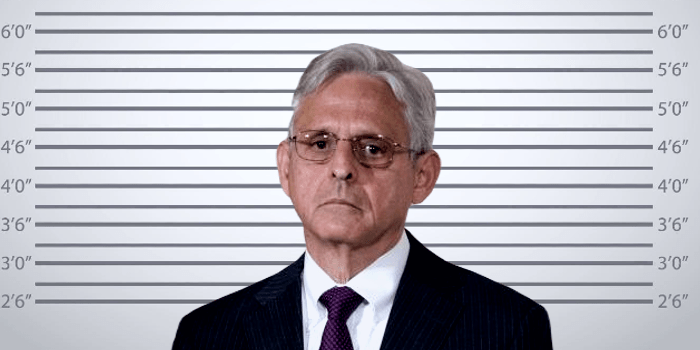(Jacob Bruns, Headline USA) After months of threatening, Republicans in the House Judiciary Committee are taking action against Attorney General Merrick Garland, advancing the largely toothless but symbolic measure of holding him in contempt of Congress, the Washington Examiner reported.
Namely, Garland failed to furnish Congress with the requested audio recordings of a special counsel’s interview with Biden regarding his handling of classified documents.
Judiciary Committee chairman Jim Jordan, R-Ohio, and Oversight Committee chairman James Comer, R-Ky., subpoenaed the audio in February, along with the written transcript of special counsel Robert Hur’s interview, as part of their impeachment inquiry into whether Biden abused his power when he was vice president to help his family score lucrative business deals.
Hur concluded after his investigation that Biden had mishandled the documents, obtained throughout his tenure as both U.S. senator and vice president, and that Biden had also allowed a ghostwriter to access those documents in 2017.
Despite Hur’s findings, the DOJ framed the situation as accidental, the bungling of an elderly man who lacked mental acuity, determining that no jury would reasonably find the president competent to stand trial.
When requested, the DOJ did provide Congress with a heavily redacted transcript of the interview.
But if Garland fails to hand over the audio recordings, he could face criminal charges when the case is handed over the the U.S. Attorney’s office, that is, to Garland’s own department.
Although Garland’s own Justice Department is unlikely to charge him, a future Trump DOJ could opt to do so, just as Garland’s Justice Department went after Trump advisers Peter Navarro and Steve Bannon for ignoring subpoenas from Nancy Pelosi’s partisan Jan. 6 Committee. Navarro is currently serving out a four-month prison sentence.
Carlos Uriarte, an assistant attorney general and DOJ spokeswoman, claimed that making Biden’s complete interview available public could endanger Americans or pose some undisclosed risk to national security.
As a result, Uriarte argued, Americans just needed to trust the DOJ.
“We have … repeatedly urged the Committees to avoid unnecessary conflict and to respect the public interest in the Department’s ability to conduct effective investigations by protecting sensitive law enforcement files,” he wrote in an April press release.

